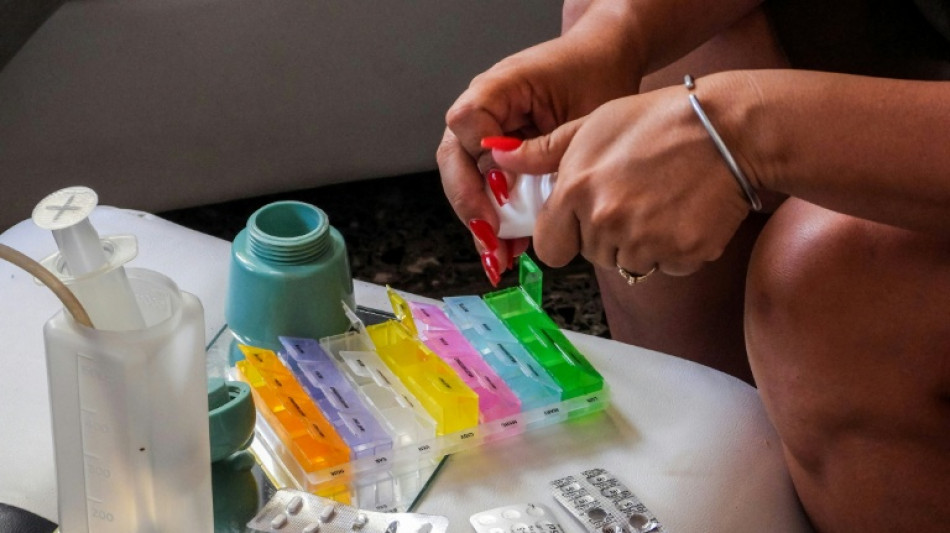
-
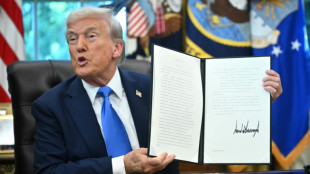 Trump hits H-1B visas, a tech industry favorite, with $100,000 fee
Trump hits H-1B visas, a tech industry favorite, with $100,000 fee
-
Pogacar challenge delights Evenepoel for Rwanda world championships
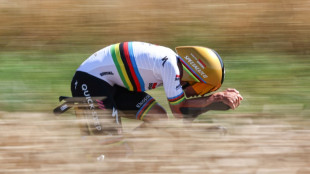
-
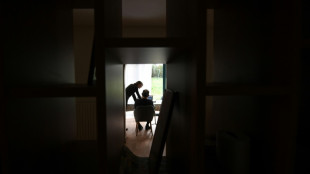 How much progress has been made against Alzheimer's disease?
How much progress has been made against Alzheimer's disease?
-
Europe takes Laver Cup lead as Alcaraz waits in wings

-
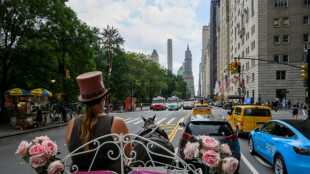 Central Park horse-drawn carriages face ride into the sunset
Central Park horse-drawn carriages face ride into the sunset
-
Schmelzel, Katsu share LPGA NW Arkansas Championship lead

-
 Perez strikes double world gold with second race walk victory
Perez strikes double world gold with second race walk victory
-
Malawi ruling party claims tampering in vote count
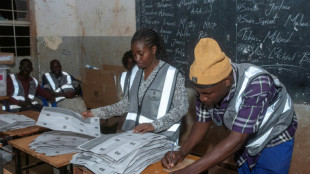
-
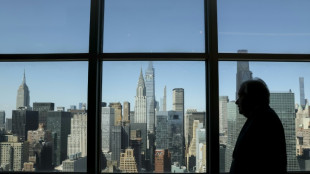 UN chief says world should not be intimidated by Israel
UN chief says world should not be intimidated by Israel
-
UN chief warns 1.5C warming goal at risk of 'collapsing'
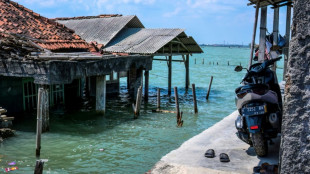
-
 Canada coach Rouet only has eyes for World Cup glory after dethroning New Zealand
Canada coach Rouet only has eyes for World Cup glory after dethroning New Zealand
-
Trump-backed panel sows doubt over Covid-19 shots
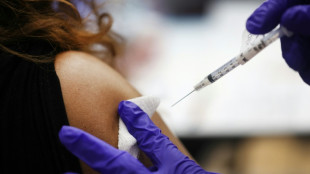
-
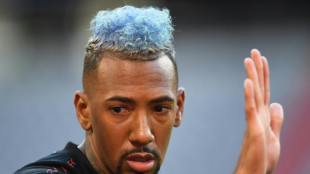 Germany World Cup winner Boateng announces retirement
Germany World Cup winner Boateng announces retirement
-
US stocks end at records again as Trump and Xi talk
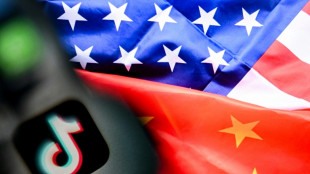
-
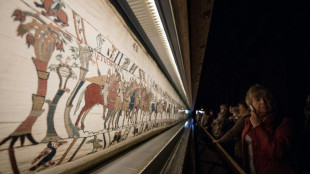 Bayeux Tapestry leaves museum for first time since 1983 before UK loan
Bayeux Tapestry leaves museum for first time since 1983 before UK loan
-
Canada end New Zealand's reign as world champions with superb semi-final win

-
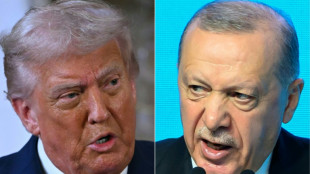 Trump to welcome Turkey's Erdogan, sees end to warplane row
Trump to welcome Turkey's Erdogan, sees end to warplane row
-
Canada bars Irish rap band Kneecap from entering

-
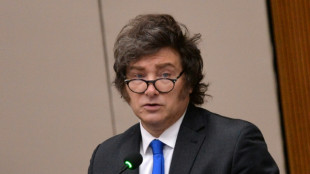 Argentina's Milei says 'political panic' rattling markets
Argentina's Milei says 'political panic' rattling markets
-
Colombia slams 'excessive' US military buildup, warns against Venezuela intervention

-
 India beat valiant Oman in Asia Cup T20
India beat valiant Oman in Asia Cup T20
-
International treaty protecting world's oceans to take effect
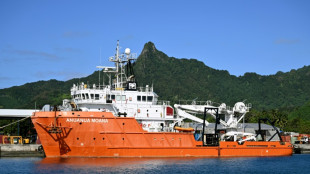
-
 Porsche slows electric shift, prompting VW profit warning
Porsche slows electric shift, prompting VW profit warning
-
Venezuela accuses US of waging 'undeclared war'

-
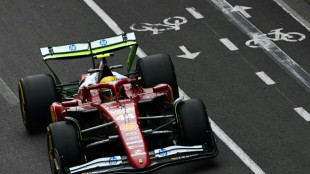 Hamilton beaming after Ferrari 1-2 in Baku practice as McLaren struggle
Hamilton beaming after Ferrari 1-2 in Baku practice as McLaren struggle
-
Kenya's only breastmilk bank, lifeline for premature babies
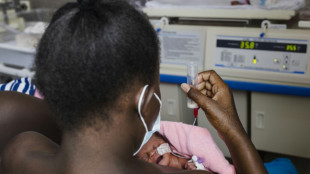
-
 Hard-working Paolini prolongs Italy's BJK Cup title defence
Hard-working Paolini prolongs Italy's BJK Cup title defence
-
Kenya's Sawe targets Berlin record to salute Kipchoge and Kiptum
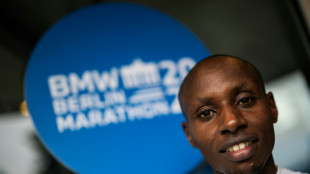
-
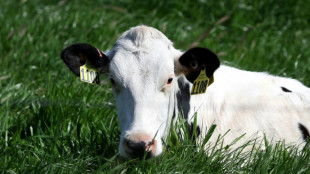 Painting stripes on cows to lizards' pizza pick: Ig Nobel winners
Painting stripes on cows to lizards' pizza pick: Ig Nobel winners
-
England's Matthews ready for another 'battle' with France in World Cup semi-final

-
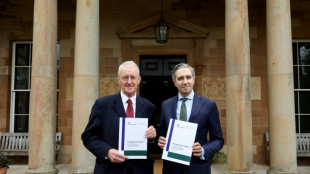 UK, Ireland announce new 'Troubles' legacy deal
UK, Ireland announce new 'Troubles' legacy deal
-
Estonia and allies denounce 'reckless' Russian air incursion
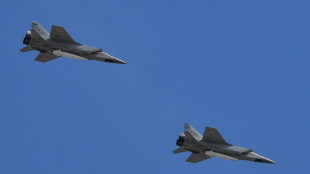
-
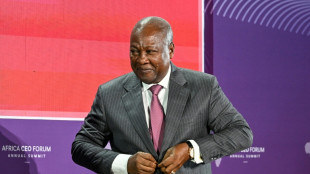 West Africans deported by US to Ghana sue over detention
West Africans deported by US to Ghana sue over detention
-
Independence of central banks tested by Trump attacks on US Fed
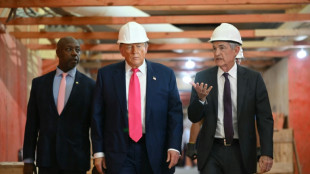
-
 New Fed governor says was not told how to vote by Trump
New Fed governor says was not told how to vote by Trump
-
Trio of titles on a golden night for USA at world championships

-
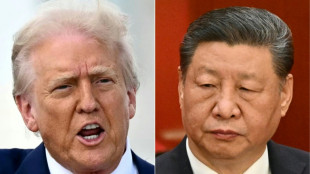 Trump sees progress on TikTok, says will visit China
Trump sees progress on TikTok, says will visit China
-
Biathlete Fourcade awarded sixth Olympic gold 15 years later

-
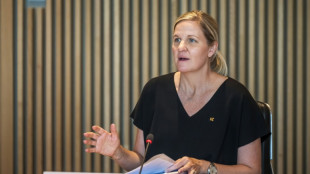 IOC to again allow Russians under neutral flag at 2026 Winter Olympics
IOC to again allow Russians under neutral flag at 2026 Winter Olympics
-
Arsenal will learn from Lewis-Skelly's Haaland taunt: Arteta

-
 Lyles defies health issues to emulate Bolt's feat
Lyles defies health issues to emulate Bolt's feat
-
UN Security Council votes to reimpose Iran nuclear sanctions
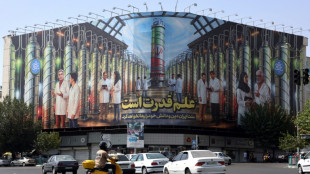
-
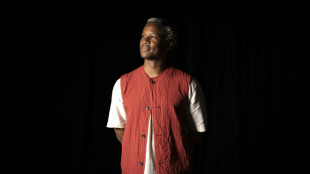 Fresh off Cannes win, Akinola Davies imagines the future of Nigerian film
Fresh off Cannes win, Akinola Davies imagines the future of Nigerian film
-
Bol retains world crown but laments McLaughlin-Levrone absence

-
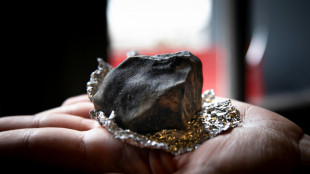 Amateur astronomers help track asteroid to French impact site
Amateur astronomers help track asteroid to French impact site
-
UK launches dark web portal to recruit foreign spies
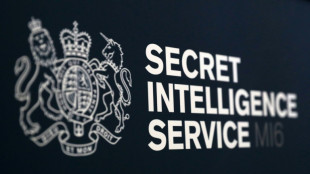
-
 Roaring Lyles matches Bolt with fourth world 200m title
Roaring Lyles matches Bolt with fourth world 200m title
-
Ratcliffe visit not a Man Utd crisis meeting, says Amorim

-
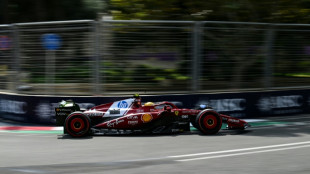 Hamilton tops practice in Ferrari 1-2 as McLaren struggle in Baku
Hamilton tops practice in Ferrari 1-2 as McLaren struggle in Baku
-
Jefferson-Wooden emulates Fraser-Pryce with world sprint double


Bitter pill: Cuba runs low on life-saving medicines
Cuban Jessica Rodriguez never knows if she will find the medicines that keep her four-year-old son alive in a country that has all but run out of essential drugs.
On a near daily basis she sprints from one state-run pharmacy to another on a quest for pills and syringes. Increasingly, she has to turn to the black market and pay the higher prices there. That is if they have what she needs.
Rodriguez, who left her job as a physiotherapist to care for her sickly son, receives a monthly state grant of less than $12. Her husband's salary is not much more.
And as Cuba sinks ever deeper into its worst economic crisis in decades -- with critical shortages also of food and fuel, regular power blackouts and rampant inflation -- Rodriguez fears that one day the drugs may run out altogether.
"It drives me crazy," the 27-year-old told AFP at her home in Havana's Santa Fe neighborhood as her son Luis Angelo, watched a cartoon on her mobile.
"Missing a dose, not having the suction tubes, a catheter that cannot be replaced... all can lead to serious illnesses which can cost him his life."
Luis Angelo was born with a deformed esophagus, and while he waits to receive a transplant, breathes through a tracheostomy and eats though a tube inserted into his stomach. He is also asthmatic, has a heart condition, and suffers epileptic fits.
The boy takes seven different drugs daily, and needs a variety of tubes, syringes and other equipment to administer them.
Cuba, reputed for supplying highly trained medical doctors to other countries and for its advanced domestic pharmaceutical industry, has long counted vaccines and medical services among its top exports.
Under US sanctions since 1962, and hard hit by the COVID-19 pandemic that all but tanked its tourism industry, the communist country is now no longer medically self-sufficient.
Last year, the island nation of 9.7 million people could not afford the $300 million needed to import the raw materials it needed to produce hundreds of critical medicines.
- 'There's nothing' -
In Havana, and further afield, pharmacy shelves are bare and hospitals lack basic supplies such as gauze, suturing thread, disinfectant and oxygen.
"There are days when there's nothing," a doctor in the capital told AFP on condition of anonymity.
Cuba's healthcare system is public and meant to be universally accessible. Private pharmacies, clinics and hospitals are illegal.
Patients who require chronic medicine are issued with a document known as a "tarjeton," which allows them access to subsidized medicines.
Luis Angelo has a "tarjeton," but it is of little use if pharmacies don't have the drugs, said his mom.
On the black market, she is forced to pay $3 to $4 for a blister sheet of pills -- about a quarter of the average monthly Cuban salary at the unofficial exchange rate.
"The price is cruel," Rodriguez told AFP.
- 'Ray of hope' -
Confronted with the ever-worsening medicine shortage, the government has since 2021 allowed travelers to bring back food and medicines in their luggage -- though not for resale.
Some of these drugs are feeding a black market that profits from the desperately infirm with sales via WhatsApp or internet sites.
Other sites, however, offer drugs for free or barter them for food.
In the NGO sphere, projects have also emerged to provide medicines to Cubans free of charge.
One, dubbed Palomas, has helped tens of thousands of people since its creation in Havana in 2021.
It relies on medicines that people have "left over from a treatment, or were brought by someone from abroad," coordinator Sergio Cabrera told AFP.
Every day, in 13 WhatsApp groups, Palomas publishes a list of medicines it has available, and another list of those it needs.
One beneficiary was 32-year-old dentist Ibis Montalban, who said she managed to get her mother's chronic diabetes medication through Palomas, adding: "thank you, thank you, thank you."
Cabrera says it is hard to witness the suffering of people in need.
"Many people cry here, and many times we cry with them," he said, grateful that Palomas can at least offer " a ray of hope."
M.Betschart--VB
